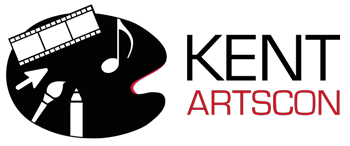Theme: Art for Change
Like previous conferences, this year’s theme is another conundrum. “Change” is typically seen as making something different, developing it, and/or moving it from one place or state to another. But “change” can also refer to loose coins — the few pennies we have left over — or to money in general.
Therefore, the topic for CArtsCon 2017 will fuse these concepts into a lively debate:
- Can art drive change (or movement or development)?
- Can art change moods and minds?
- Can and how is art created for very little money?
- Is art created with a substantial “piece of change” (a lot of money) also worthwhile?
- And…how do we create powerful arts movements with or without significant funds? How does money factor into the overall process?
Some of the sub-topics the Conference on the Arts will examine will include (but not be limited to):
- The ways in which the arts can be used as a driver for change
- Using the arts to educate and transform society
- The reciprocal dialogue between the arts and reality
- Techniques employed to motivate, educate, inform, and persuade
- The power of various art forms to create awareness and thought (including theatre, film, dance, writing, visual arts, etc.)
- Ethical considerations for the arts
- The psychology behind making “art for change” (on the multiple theme levels)
- Cost considerations when making art
- Amazing works of art made for very little expenditure
- Amazing works of art made for very great expenditure. Are they justified?
- Historical cases and examples of art for change
- The intersection of the desire for change and reality. How, why, and when does it happen
- The evolving lexicon of visual idioms in the contexts of social, personal, and artistic change
- Methodologies needed to address the changing arts disciplines
- How to create essential changes—even a revolution—in academic method, and bring about new ways of teaching the humanities, historiography, and the arts
- The business of creating art and the ways in which it is impacted by “change” (on all levels of the theme)
- How to plan and budget arts projects to maximize the potential of available funds
- Contemporary challenges in sponsorship, funding, and/or curatorship, as these relate to change
- Art as rebellion
These and other sub-topics will be explored through a variety of tracks. The tracks will include: Visual Presentations; Arts Workshops; Academic Papers; Creative Writing; A Short Film Festival; Art History Classes; Art Demos; Round Table Discussions; and, an Art Exhibit.
Target conference participants include:
Artists in all arts disciplines and media; academics, archivists, historians, curators, guides, students, researchers, curriculum planners, policy makers, photographers, and professionals in the fields of media, education, arts, music, humanities, science, and social sciences; Financial professionals working in arts and arts related fields
Venues
- Canterbury Baptist Church (St George’s Place, Canterbury, Kent CT1 UT)
- Warnborough College (18 Lower Bridge Street, Canterbury, Kent CT1 2LG)

